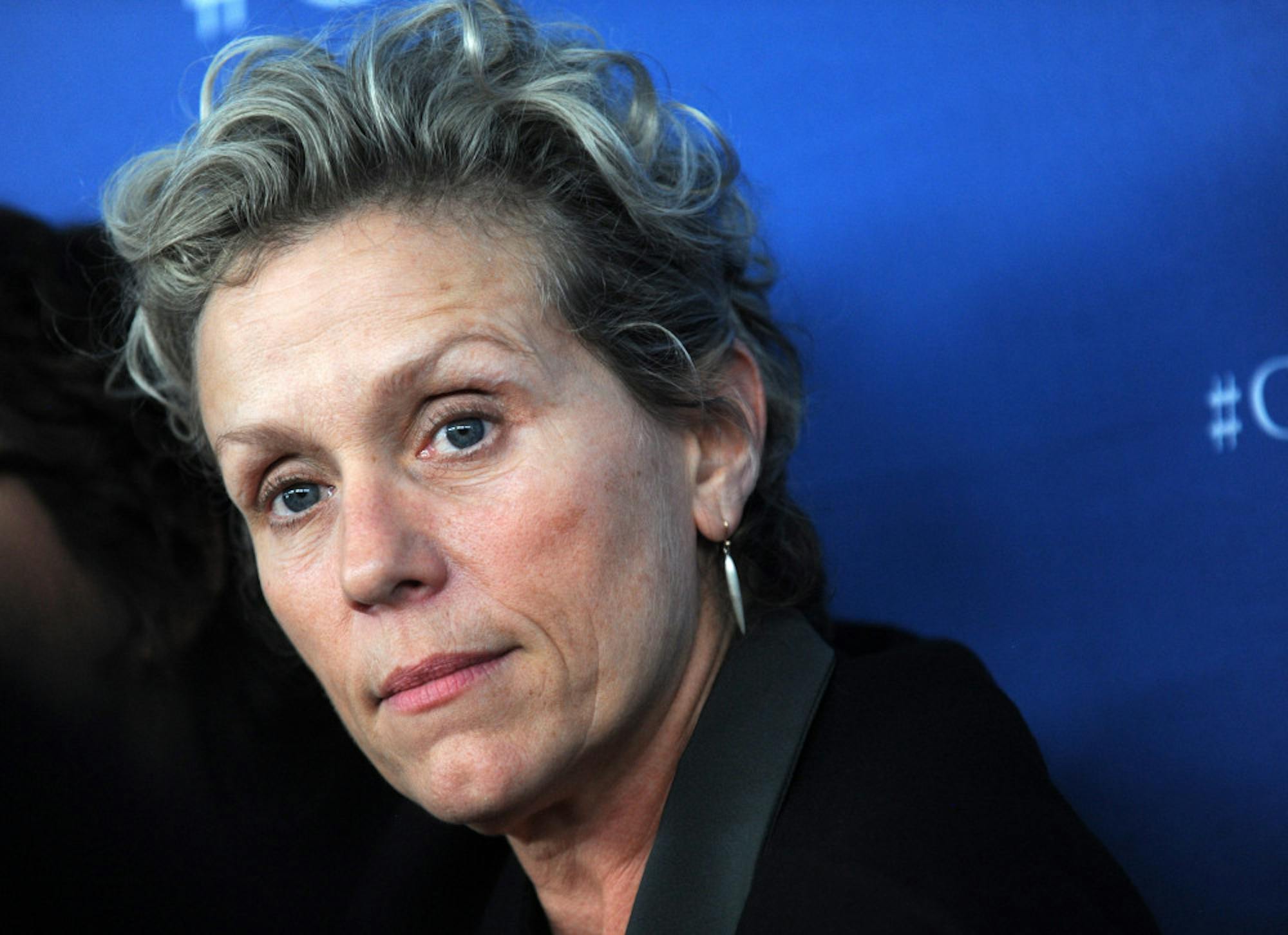With fall miniseries “Olive Kitteridge,” HBO is proving its ability to successfully adapt long-form narrative to the small screen. The new drama, based on Elizabeth Strout’s 2008 collection of Pulitzer Prize-winning short stories, is a triumph in artful storytelling. Character studies, traditionally the stuff of physical novels, can now be found at the forefront of modern media. By sinking hooks into mainstream viewers with big-money production and the most acclaimed players in Hollywood, shows like “Olive Kitteridge” are making literary flourish cool again.
The series, which is broken into four hour-long chapters, explores the lives of rural Maine’s tortured townsfolk. Each character has his or her own story, family and reputation. Their demons and the layers of personality they hide behind are gradually revealed. It’s one of those shows where the characters seem almost too raw to make for compelling TV, like they belong on the page. But these relationships are so intricately woven, their identities so credibly flawed, that viewers will feel close to them on a level that normal scripts wouldn’t even touch.
Right away we see Olive, the austere anti-heroine played masterfully by Frances McDormand. The show opens as she lumbers along in the woods, pausing to load a gun to kill herself in her old age. Then comes a flashback to middle-aged Olive, responding to her husband’s (Richard Jenkins) Valentines Day gifts with an icy callousness that rivals the town’s perpetual snowfall. “You threw away my card!” he gasps; “I already read it,” she deadpans.
You won’t like Olive, but you’ll want to learn all about her. You’ll come to understand her and then you’ll love her. Just like any classic character missing a moral codebook -- from Dorian Gray to Don Draper -- her ceaselessly churning inner darkness doubles as a vortex to pull viewers in. Within the sweeping time span of Olive’s narrative hides the reason for her venom-slinging wit, her lack of motherly love and her searing glances punctuated by every line in her face. Viewers have no choice but to stick around.
This dark curiosity manifests itself in each and every fleshed-out character in this ensemble piece. Thus, Olive isn’t the protagonist (or antagonist) but an entrance to an entire cache of living, breathing human beings milling about in her Middle America neighborhood. At first glance they’re the ignorantly blissful worker ants high art loves to poke fun at, touting white-bread sandwiches, cherub smiles and names like Marsha and Louise. But hold a magnifying glass up to any one of them, as “Olive Kitteridge” does with remarkable steadiness, and a far murkier emotional cesspool is revealed. Olive’s husband, the neighborhood pharmacist, is a loveable dope whose kindness masks the sorrow he has buried deep and suppressed. Their son is a chilling mini-Olive who inherits her biting retorts and distaste for humanity. All around them people choke down pills, battle hallucinations and wither away into tragedy.
Given this synopsis, one might wonder if all the doom and gloom is worth it just to get to know a few sad suburbanites. It’s a fair question. Not only does “Olive Kitteridge” occupy the sleepiest of sleepy towns, but it primarily focuses on the married, the old and the unattractive. Truth be told, the miniseries is so heavily bogged down by themes of aging and mortality that it probably couldn’t survive past its four-episode run if it tried. “Olive Kitteridge” demands patience, a risky requirement for just about anything in 2014; like any slow-burning novel, it would be far easier just to put it down and click to a new channel.
But HBO isn’t going for easy. For a few years now the network has been at the helm of a digital storytelling revolution, upping the ante on all its original series until they match feature films in script, acting, production and emotional gravitas. Literature opens up a brave new world for this brand of experimentation and, as “Olive Kitteridge” shows, HBO is poised to exploit it.
"Olive Kitteridge" is what happens when a major network is freed from constant pressures toward action, sex appeal and forward-pressing plot. Instead, they’ve chosen to swing the spotlight towards all the awkward, trembling moments you’d find in a Pulitzer Prize winner. This new recipe calls for simple introspection and subtlety. The result is deeply satisfying.
HBO brings literature to the small screen with 'Olive Kitteridge'

Frances McDormand gives a superb performance as the titular character in "Olive Kitteridge."
Summary
"Olive Kitteridge" is what happens when a major network is freed from constant concerns of action, sex appeal and forward-pressing plot. The result is deeply satisfying.
4 Stars





